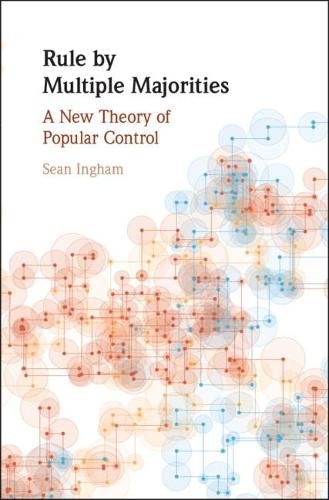Readings Newsletter
Become a Readings Member to make your shopping experience even easier.
Sign in or sign up for free!
You’re not far away from qualifying for FREE standard shipping within Australia
You’ve qualified for FREE standard shipping within Australia
The cart is loading…






What does it mean to say that citizens have control over their leaders? In a democracy, citizens should have some control over how they are governed. If they do not participate directly in making policy, they ought to maintain control over the public officials who design policy on their behalf. Rule by Multiple Majorities develops a novel theory of popular control: an account of what it is, why democracy’s promise of popular control is compatible with what we know about actual democracies, and why it matters. While social choice theory suggests there is no such thing as a ‘popular will’ in societies with at least minimal diversity of opinion, Ingham argues that multiple, overlapping majorities can nonetheless have control, at the same time. After resolving this conceptual puzzle, the author explains why popular control is a realistic and compelling ideal for democracies, notwithstanding voters’ low levels of information and other shortcomings.
$9.00 standard shipping within Australia
FREE standard shipping within Australia for orders over $100.00
Express & International shipping calculated at checkout
What does it mean to say that citizens have control over their leaders? In a democracy, citizens should have some control over how they are governed. If they do not participate directly in making policy, they ought to maintain control over the public officials who design policy on their behalf. Rule by Multiple Majorities develops a novel theory of popular control: an account of what it is, why democracy’s promise of popular control is compatible with what we know about actual democracies, and why it matters. While social choice theory suggests there is no such thing as a ‘popular will’ in societies with at least minimal diversity of opinion, Ingham argues that multiple, overlapping majorities can nonetheless have control, at the same time. After resolving this conceptual puzzle, the author explains why popular control is a realistic and compelling ideal for democracies, notwithstanding voters’ low levels of information and other shortcomings.